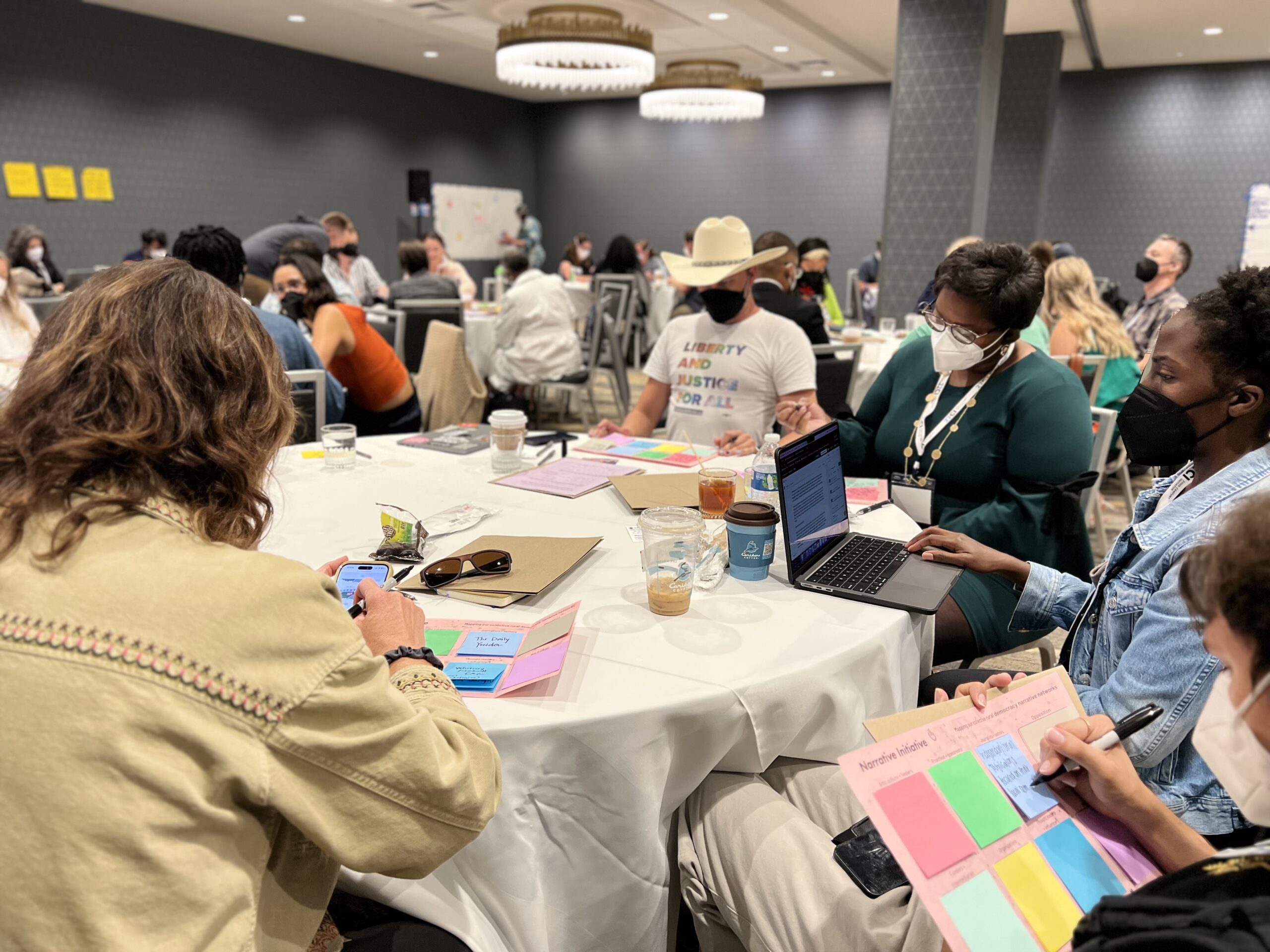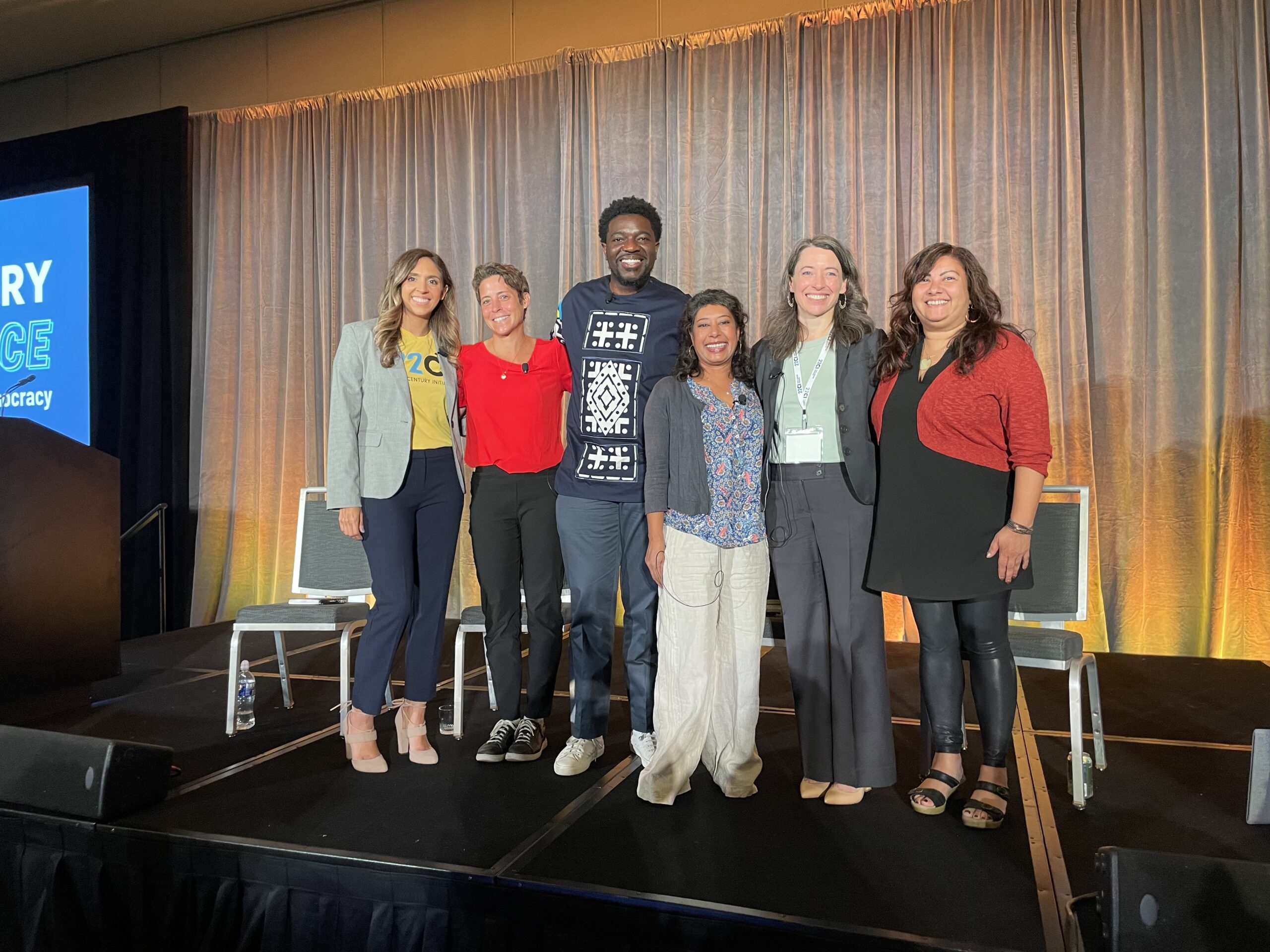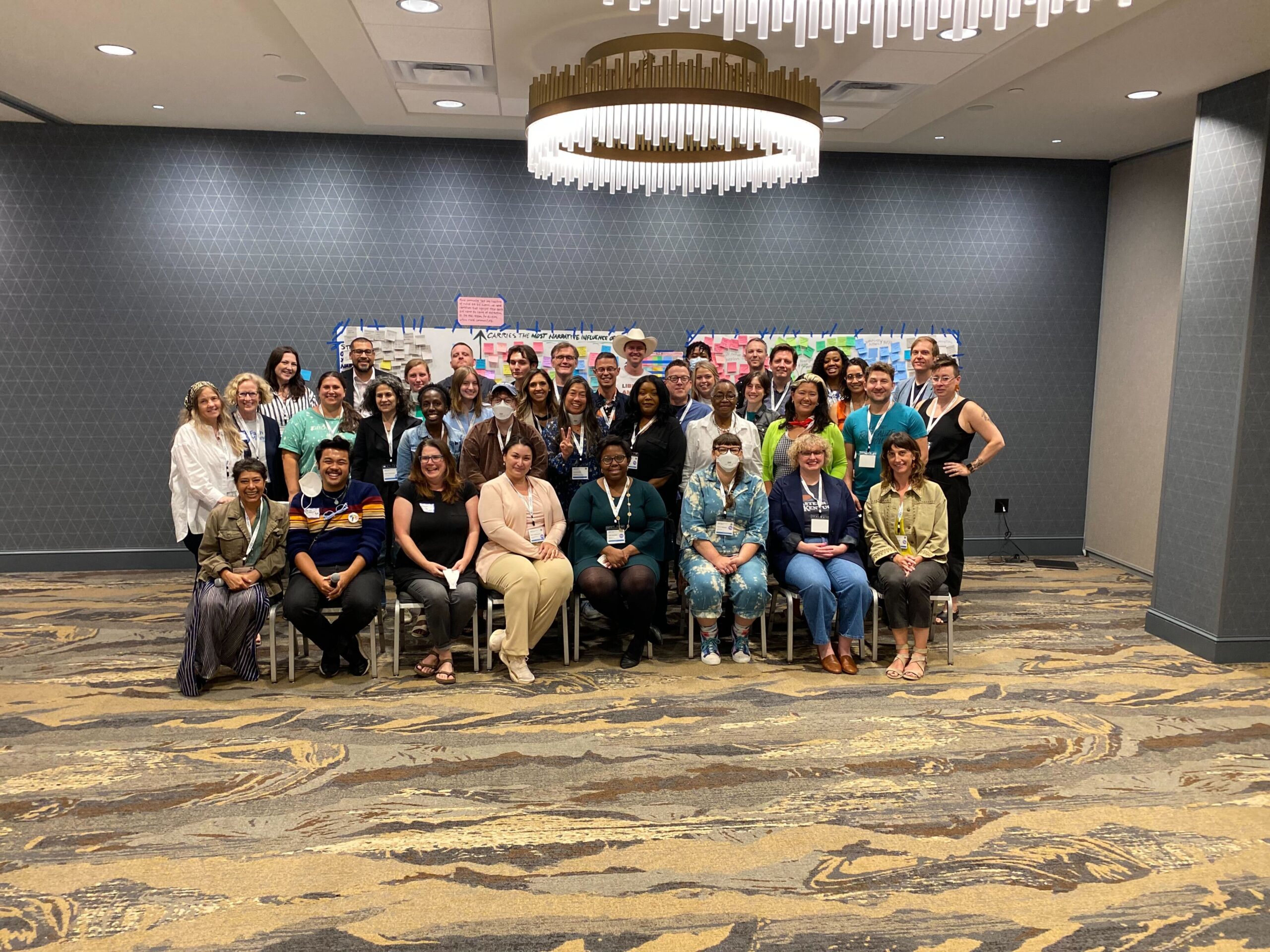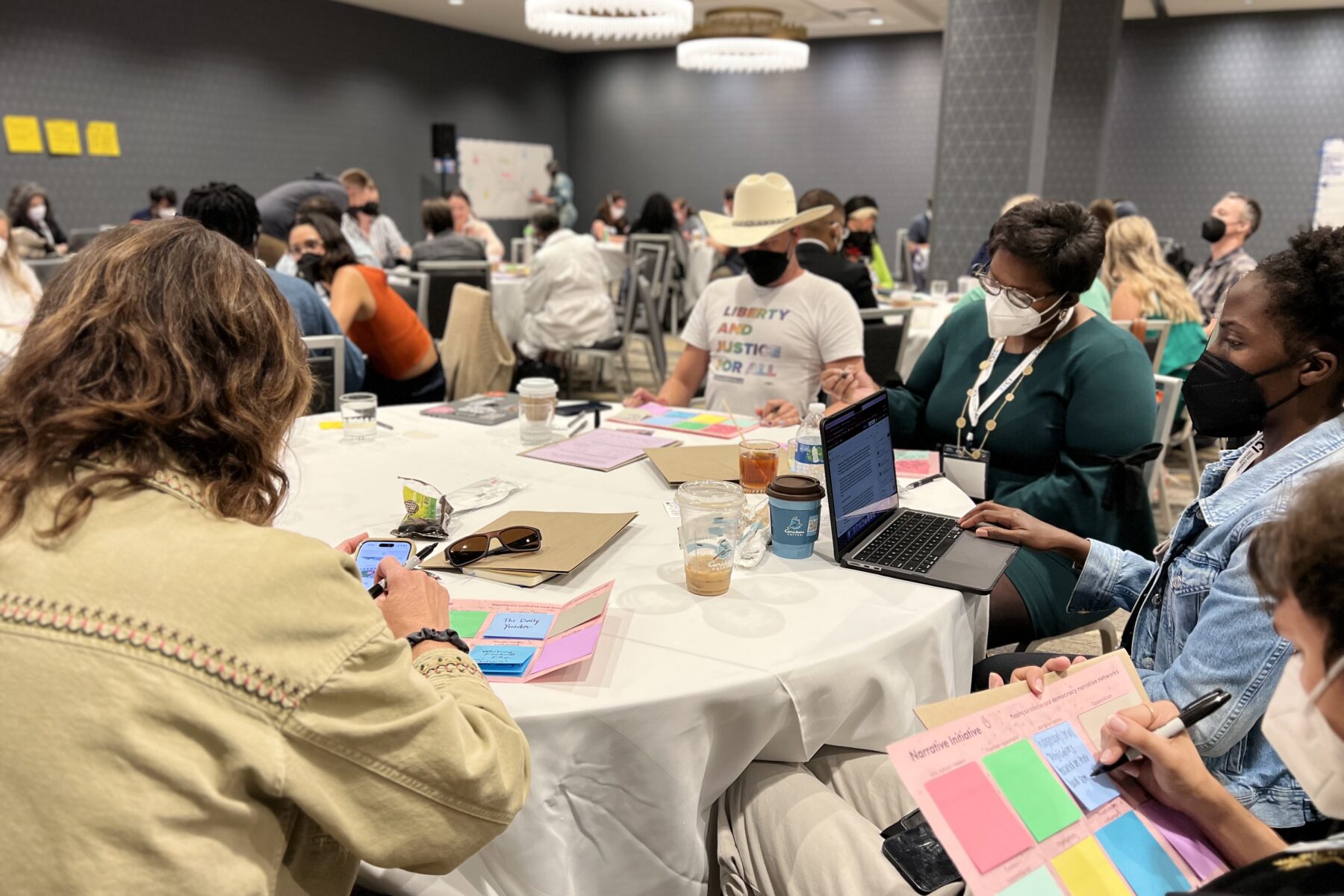From Rural America with Love
Three weeks ago, the usually remote Narrative Initiative team convened in Minneapolis for the inaugural 22nd Century Conference: Forging a People-Powered Democracy. This would mark the first time I would meet my teammates in person, the first time I would attend a conference, and my first time in Minneapolis. As I reflect back on the trip, I keep coming back to how powerful it was for me to experience a supportive space with people from rural and urban areas who, through our conversations, helped me find the language to name and process some of my core experiences growing up in Cut and Shoot, Texas, and then leaving for college in a city. Here are three takeaways I wish everyone would take to heart.
Rural America is Not A Lost Cause
On Thursday, Narrative Initiative held Narrative Strategy to Support Progressive Rural Organizers and Communicators, a one-day pre-convening for rural progressive organizers, journalists, and strategists to reflect on narratives that affect their work. The morning began with a narrative landscaping exercise where we broke out into groups and compiled harmful and helpful narratives that impact everyone’s work. Talking with people like Jiva Manske and Josie Alexander from Equal Justice USA made me aware of how much of my life I’ve hidden from the public, not out of privacy, but out of shame. Within many rural communities there is this idea that you’ve “made it” if you leave— an idea that you’ll likely hear echoed in movies and television if there is a rural character. And on top of that, people who are unfamiliar with rural life often associate it with lack of opportunity, education, and diversity.
In truth, there was nothing shameful about growing up in Cut and Shoot. I actually enjoyed the quaint life of my hometown—beautiful sunsets, winding country roads. But others’ perception of Cut and Shoot was always negative, and I internalized that. By the name alone people think Cut and Shoot is a ‘lost cause,’ a place with just rednecks and Republicans, a place not worth saving or mentioning. Not only did this gathering help me understand these feelings from a place of compassion, but I learned these dynamics are part of much larger harmful, deep narratives – fatalism and destiny – which have permeated our stories, lives, and culture for over 50 years. Statements like “Nothing will get better here” to “Success means leaving rural areas” belong within that narrative. In contrast, narratives that recognize local resistance and center the inherent dignity of rural life are rooted in feelings of hope, not shame.
I cannot stress enough how sharing a space with passionate rural organizers shifted my mindset on my past and current views on other rural areas. Rural America is not a lost cause. There are changemakers actively dismantling harmful deep narratives and systems of oppression within every rural community. Those may be small or non-traditional acts, but I can promise it’s happening. That’s how we know rural America is not a lost cause.

Organizing Starts With Love
During Saturday morning’s plenary, “How We Will Block the Authoritarian Movement & Build a Multiracial Pluralistic Democracy,” Rinku Sen, moderator and Executive Director at Narrative Initiative, urged us to think more about the importance of friendship when organizing everyday people and lowering the ‘bar of entry’ into movement spaces. Doran Schrantz, Executive Director at ISAIAH and Faith in Minnesota, said it perfectly, “Don’t reject something initially because it seems small. Organizing starts seemingly small— it’s four, five, or six relationships that get built around people’s public love for each other…” As changemakers, we focus so greatly on the work in front of us that it also risks distracting us with stress or fear of a non-progressive future. I found that, when all hope feels lost or you feel like giving up on this work, ground yourself with the true reason that you got into this work— most likely love, a relationship, or empathy.

Sustain Your Energy with Hope
It’s really hard to keep up with political news today— not only is there a large amount of information to wade through, but often developments are negative. Some refer to the overarching theme that’s animating our political life as “grievance politics.” What I’m trying to say is, there’s a lot of grief, anxiety, and distress in today’s politics.
You might think this means that nothing you do would ever make a difference. Or it might make you feel alone. Or you might wonder how you fit into the picture. What I learned by being in Minneapolis for this conference is that being connected to people who are resisting and blocking authoritarian power while building towards multiracial democracy makes it possible to stay connected in really difficult political times. When you have a group, you’re less likely to feel that the weight of the world is on you alone. Coming together from a place of hope is energizing, and I left the weekend with an energy that I felt as sustaining, not debilitating.

In short, The 22nd Century Conference was an emotional rollercoaster from beginning to end, but I’d do it all over again. Whether it was the Narrative Initiative team synthesizing notes on our lunch break or watching Junauda Petrus read her children’s book, “Can We Please Give the Police Department to the Grandmothers?” during a plenary, I look back and smile with hope. This experience taught me a lot about myself, others and it’s great to know we’re the ones paving the way for a people-powered democracy.

